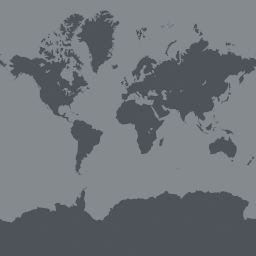Effective conservation planning depends on the existence of reliable data being available on the status and distribution of fisheries resources. In Uganda, the National Fisheries Resources Research Institute (NaFIRRI) houses a vast number of specimens that document spatial and temporal patterns of fish diversity in the country, however, data remains accessible only to institute scientists and exists in formats unsuitable for sharing, effectively resulting in little or no impact in terms of informing conservation policies.
The goal of this project is to increase capacity for conservation of threatened fish species through data mobilization and training. Specifically, the project will mobilize data on at least 10,000 fish records from Uganda’s aquatic systems (including lakes, rivers and streams, and wetlands), while providing training to fish biodiversity scientists in the use of data publishing tools, and creating awareness among policy makers in use of biodiversity information for decision making.
The project team will publish the mobilized data through GBIF.org and UgaBIF, and ensure incorporation into relevant conservation policies in Uganda through close involvement of biodiversity research and management agencies, universities, and policy makers. In the long-term, this project is anticipated to increase capacity for evidence–based conservation, biodiversity research, and education.
Project Progress
The launch of the project at NaFIRRI increased awareness of the intervention leading to scientists providing data to publish through GBIF. To ensure that mobilized data directly benefits intended users a data needs survey was conducted. This contributed to visibility of the project amongst different stakeholders and it helped design formats for mobilizing data. Data mapping has also been completed. With this, NaFIRRI was able to identify data holding institutions. The data sets that were lacking GPS coordinates in the first phase of data mobilization have since been georeferenced, and some species occurrences based on available locality names has been confirmed. The second data set the project published has information on species abundance.
One representative from the project team completed two capacity enhancement workshops adn recieved certification badges for both. NaFIRRI held a national training workshop on data mobilization and publishing adn changed the participants view on open data.
As a result of the project two data sets with a total of 10,691 occurence records have been published through GBIF. The project set a foundation for a bigger investment by JRS Biodiversity Foundation to continue the data mobilization, build more partnerships, expand the data mobilization scope by moving beyond fish to include other taxa such as invertebrates and algae, and create local tools for data sharing such as a locally hosted data portal.
NaFIRRI was nominated to lead in the benchmarking of aquatic biodiversity data for monitoring the National Biodiversity Strategy and Action Plan (NBSAPII, 2015-2025) targets, and to identify areas for baseline data collection and long-term monitoring. This BID project has contributed to the Government targets. In addition to Makerere University, the designated data user under this project, NaFIRRI has established collaborations with other data users such as the National Environment Management Authority (NEMA), the Wildlife Conservation Society (WCS) and te International Union for Conservation of Nature (IUCN). A MoU is being finalized with the IUCN Freshwater Biodiversity unit to used the mobilized data to identify and delineate freshwater Key Biodiversity Areas (KBAs). The National Biodiversity Data Bank (NBDB) also plans to use the mobilized data to enrich their data coverage on aquatic freshwater biodiversity taxa.
This programme is funded by the European Union.




